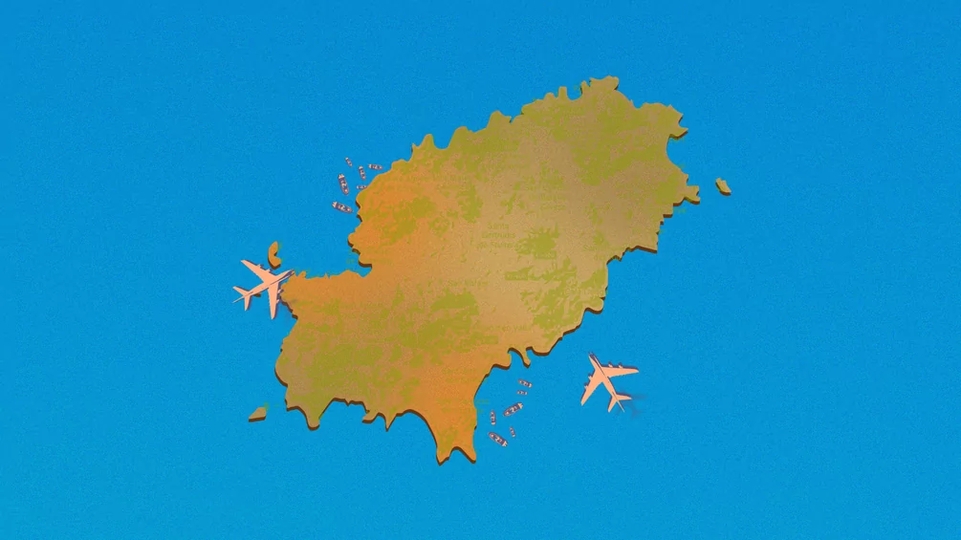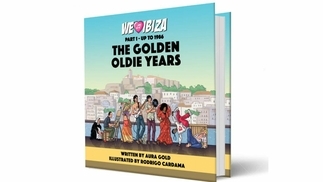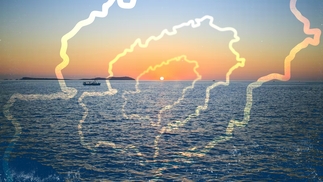Ibiza locals protest against overtourism amid increased tensions in Balearic and Canary Islands
Over 10,000 people marched in demonstrations in Mallorca and Ibiza holding signs that read: "We don’t want an island of cement" and "Tourism, yes but not like this"

Protesters in Ibiza marched against overtourism and its impact on local residents as part of a wave of demonstrations in the Balearic and Canary Islands this past weekend.
The Prou Eivissa (Enough Ibiza) group organised a rally this past Friday, 24th May, with demands of a tourism moratorium, incentives for White Isle hotels to reduce capacity, reducing already scarce water use to fill private residence pools, a ban on using taxpayers’ cash to promote Ibiza as a tourist destination, and a law limiting personal visitor vehicles on the roads, Dario de Ibiza reports.
About 1,000 people participated in the Ibiza protest with a focus on protecting locals, who are being priced out of living on the island as short-term rentals, AirBnbs and luxury hotels displace affordable housing. Signs read "We don’t want an island of cement" and "Tourism, yes but not like this", The Times reports.
"We want a limit on new tourist places and a ban on more illegal flats", Prou Eivissa spokesperson Rafael Giménez said, according to Reuters. "With less flats around on the market, it pushes up the price".
While tourism makes up more than 80% of Ibiza's economy, workers essential to the tourism businesses are struggling to live on the island. A recent Guardian feature on the Balearic housing market centres on interviews with workers who live out of their car or a caravan, a growing trend. A teacher flies from Mallorca to Ibiza 40 times a month because she "could not afford to live in Ibiza with the cost of housing", according to EuroNews.
"Ibiza’s an island, so housing is limited by definition", Giménez told The Guardian. "The law of supply and demand has totally broken down... The fact that you have more tourists and more tourist properties means that you need more workers from elsewhere to work in the shops, bars and restaurants".
In Mallorca, more than 10,000 protesters turned out for a demonstration in Palma on Saturday, according to government numbers, with organisers estimating about 25,000 participants. One of the organisers, Carme Reines, told Reuters, "We want the authorities to stop people who have not lived here more than five years from buying properties and to put more controls on holiday accommodation."
The BBC examined what the movement against "bad tourists" really means, especially in popular Spanish holiday destinations, in a recent feature. "If you look at the Canary Islands, I've read that a third of the population live on the edge of poverty", sustainable tourism academic Sebastian Zenker told BBC Travel. "Tourism offers a big income to these islands — but for whom? It's not enough to say that we want to welcome well-behaved tourists who are quiet and spend more money, it's about where the money goes. At the moment, a large proportion of the population does not benefit."
Spanish officials have been taking steps to curb overtourism and "anti-social behaviour" through implementing heavy fines and stricter rules. Earlier this month, Balearic Island authorities introduced tighter alcohol restrictions in key party areas like Ibiza's San Antonio and Magaluf in Mallorca. Supermarket alcohol sales are banned from 9:30 PM and 8 AM, and people caught drinking outside of designated areas could be fined €500-1,500. Non-EU tourists arriving in Spain without proof of accommodation could see a €10,000 fine, as of this past spring. Officials are also considering outright banning drunk and "anti-social" tourists.
Back in March, it was reported that tourists arriving in Ibiza without proof of accommodation could be fined up to €10,000, according to a new rule set by Spanish authorities. In November 2023, Uber launched in Ibiza with an initial fleet of 14 cars.






